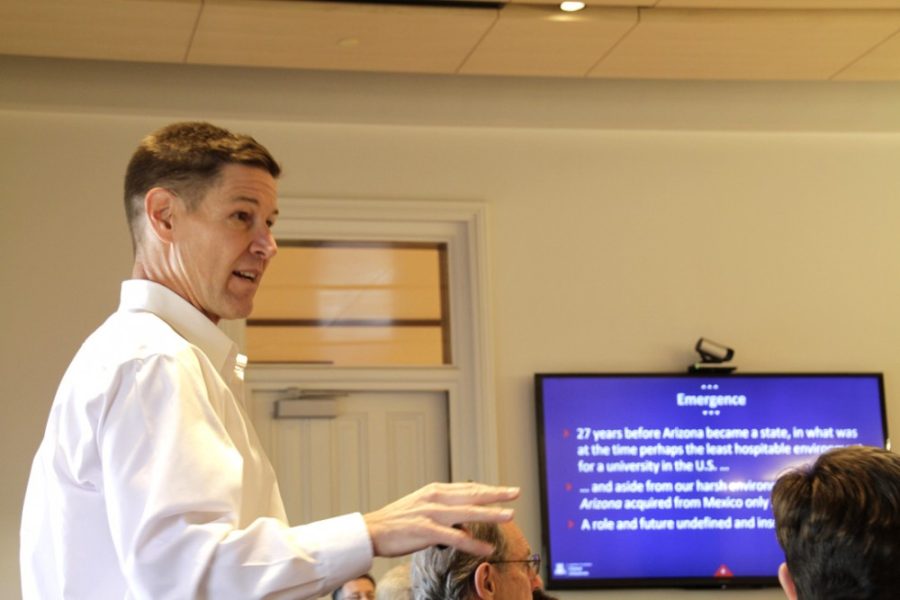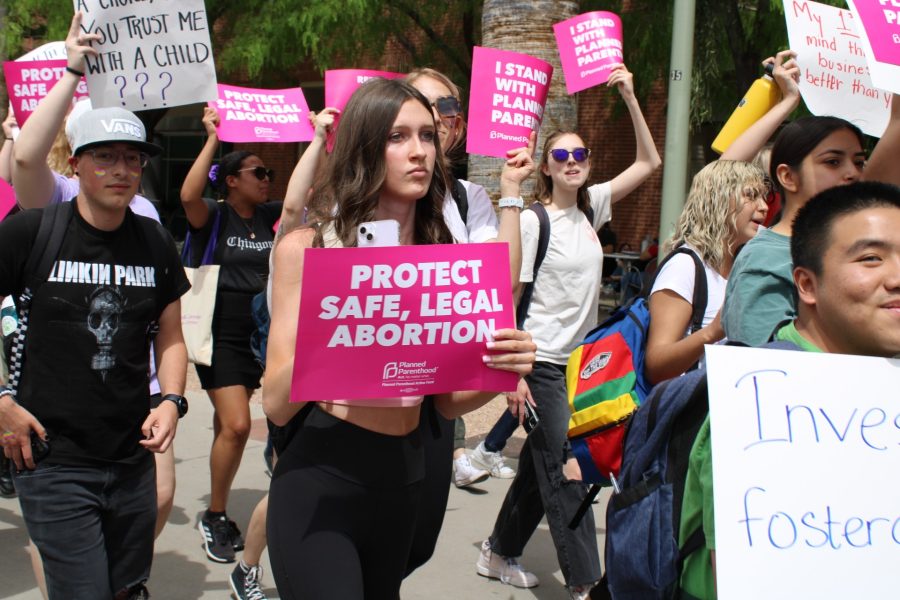The Strategic Planning and Budget Advisory Committee held a meeting on Wednesday which focused on the global advancement of the UA.
The committee is doing a series of presentations surrounding three key qualities that members agreed represent the university — sustainability, diversity and global initiatives.
This committee was established to share collective wisdom and make good decisions working as an advisory role to administration, according to Mika Galilee-Belfer, co-chair of SPBAC.
A collective group was formed that is a broad representation of all components of the UA, including faculty from various departments, administration and student leaders, like Associated Students of the University of Arizona President Issac Ortega and Graduate and Professional Student Council President Zachary Brooks.
“We value diverse conversations and are able to get all of those perspectives into one room,” Galilee-Belfer said.
Mike Proctor, vice president of Global Initiatives, gave a presentation on the current relationships UA has around the world and how to maintain them.
Proctor began by explaining the significance of the history of UA and how before it was founded, Tucson was the least hospitable environment for a university, but since then has connected with many institutions around the world, perhaps making it the most relevant and connected university in the world.
“We’re trying to build in our relationships globally with the next generation, and in that process there [were] a lot of new relationships created,” Proctor said.
He specifically mentioned the relationship created with Brazil in the 1960s after the United States Agency for International Development selected the UA to develop agricultural capacity in the city of Ceará, Brazil.
As a result of the collaboration, the Instituto de Inovação Internacional do Ceará was formed.
The current mayor of the city of Fortaleza is UA alumnus — Roberto Claudio, who received a master’s in Public Health in 2002 and a doctorate in epidemiology in 2006. Proctor said this is a direct example of how the region was influenced beyond an agricultural relationship.
“The university is not a university if it doesn’t connect to different cultures and societies,” Proctor said. “The risk of losing the Arizona legacy abroad is heightened with each passing month.”
Johnny Fares, professor of molecular and cellular biology, suggested that the UA partner with existing universities and give them accreditation.
Proctor proposed an overall collaboration with global destinations to keep the importance of global initiatives alive at the UA. He hopes to innovate, develop, execute and assess ideas further with the support of the committee.
Last session, Ben Champion, director of the Office of Sustainability, spoke about sustainability at the UA. At the next session on Feb. 18, Francisco Moreno will talk about diversity.
_______________
Follow Adriana Espinosa on Twitter.









